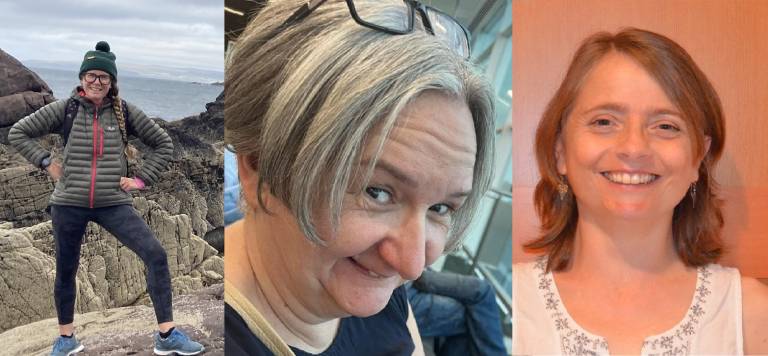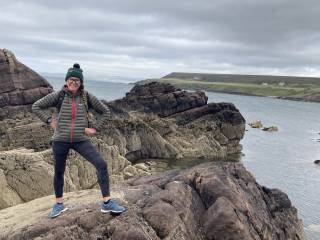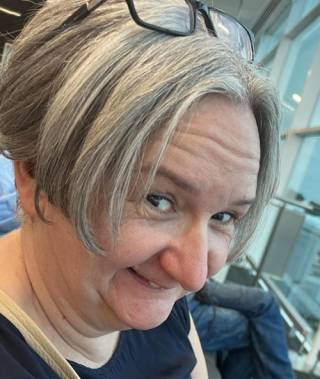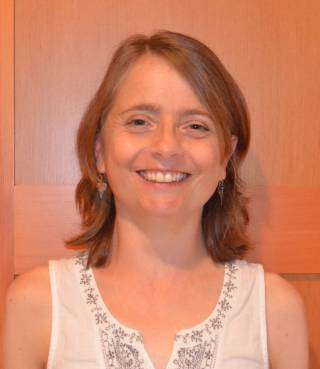International Women’s Day 2024 Spotlight
8 March 2024
This International Women’s Day we speak to Jo Dawes, Nicola Shelton and Fiona Stevenson about their careers.

Jo Dawes
Jo Dawes is a physiotherapist and NIHR Doctoral Research Fellow based in the Collaborative Centre for Inclusion Health, within the Institute of Epidemiology and Health Care. Her current research is exploring frailty in people experiencing homelessness. She has also recently published a systematic review of physical activity interventions for people experiencing homelessness and has co-led a masters-level module in Homeless and Inclusion Health. Prior to working at UCL, Jo was a Senior Lecturer in physiotherapy at St George's, University of London and has worked clinically as a physiotherapist in various National Health Service settings, including eight years in Greater Glasgow Primary Care Trust, within a specialist health and social care team for people experiencing homelessness. Jo also contributes to the work of Crisis, having developed a physiotherapy service, which runs alongside other health services during the Christmas week.

What have been your greatest challenges to date?
Juggling my work, my family life and still trying to preserve time for things that are important to me.
What do you consider to be your greatest achievement/s?
An academic life answer: Securing NIHR funding for my PhD. After first considering applying for funding many years ago, two children and several grant rejections later, I finally secured funding in 2021…
A personal life answer: Returning to running after having children and encountering many injuries. I’m excited to be training for London Marathon this year and raising money for a cause I am passionate about.
What advice would you give to young women considering a career in academia?
Even when the task ahead seems enormous and unachievable, keep plugging away at it. And, if things don’t go to plan, just keep going, you will get there in the end…
Professor Nicola Shelton
Professor Nicola Shelton is a Professor of Population Health, the Director of CeLSIUS and Head of the Health and Social Surveys Research Group. She is also the Director of BSc Population Health (2013-2019). Nicola has a principal research interest in how place affects health. Much of her work also encompasses data delivery and provision, and she is a UCL alumna.

What have been your greatest challenges to date?
Ignoring other’s views of me and my choices: “You’re very good, but not excellent” “You’ll never get a permanent job in this department” “This is career suicide”
What do you consider to be your greatest achievement/s?
Setting up the first undergraduate degree in Population Health in Europe. Being one of a very small number of non-professorial directors of a major ESRC infrastructure investment. Setting up the Institute’s first mentoring scheme with a professional services colleague. Overcoming prejudice experienced as a first-generation working-class Northern female academic.
What advice would you give to young women considering a career in academia?
Believe in yourself. Get a mentor.
Professor Fiona Stevenson
Fiona Stevenson is the Director of the Institute of Epidemiology and Health Care. She works in the Research Department of Primary Care and Population Health as Professor of Medical Sociology and has built her career in various departments of primary care. Her research interests are in (i) the construction of decision making about medical care, (ii) the impact of complex interventions, technology and treatment adherence on communication between health care professionals and patients in a range of medical settings and (iii) the implementation of research into practice. She has expertise in a range of qualitative approaches, including conversation analysis, and has published extensively using sociological theory to inform applied research. She teaches medical sociology, social theory, and qualitative methods to undergraduates and co-developed and co-facilitates the Qualitative Research Methods in Health short course which has been running since 2012.

What have been your greatest challenges to date?
My greatest challenge is, and remains, maintaining a work-life balance. Academic work offers great flexibility, but there is always the pressure that you could do more and that can be difficult to manage, particularly as I also struggle to say no. I do however run, do yoga and sing as part of a choir, all of which I see as important for managing stress both in and outside of work.
What do you consider to be your greatest achievement/s?
In terms of work, my role as Director of the Institute of Epidemiology and Health care could be seen as my greatest achievement, I feel more surprised or bemused that I have this role, particularly as I have such a strong identity as a medical sociologist, who are few and far between at UCL. I value the opportunity to try and make things better for colleagues, and to work with people in the Institute across all roles to try and develop a stronger identity that can showcase the amazing work that goes on.
What advice would you give to young women considering a career in academia?
When I joined UCL no one ‘looked like me’. There were no medical sociologists in my department and the research was generally quantitative, while my work is qualitative. I found it important to develop my disciplinary identity and seek support from outside the Department / UCL. It is important to be able to articulate what you do and what you can offer in terms of skills, and therefore how you can contribute. Learn from others in terms of behaviours you want to adopt and those you don’t. Finally, there is no such thing as ‘having it all’ for anyone, you just need to have the confidence (and sometimes courage) to take the right decisions for yourself at a particular point in time.
Links
- Jo Dawes academic profile
- Professor Nicola Shelton academic profile
- Professor Fiona Stevenson academic profile
Women’s History Month and International Women’s Day 2024 at UCL
 Close
Close

